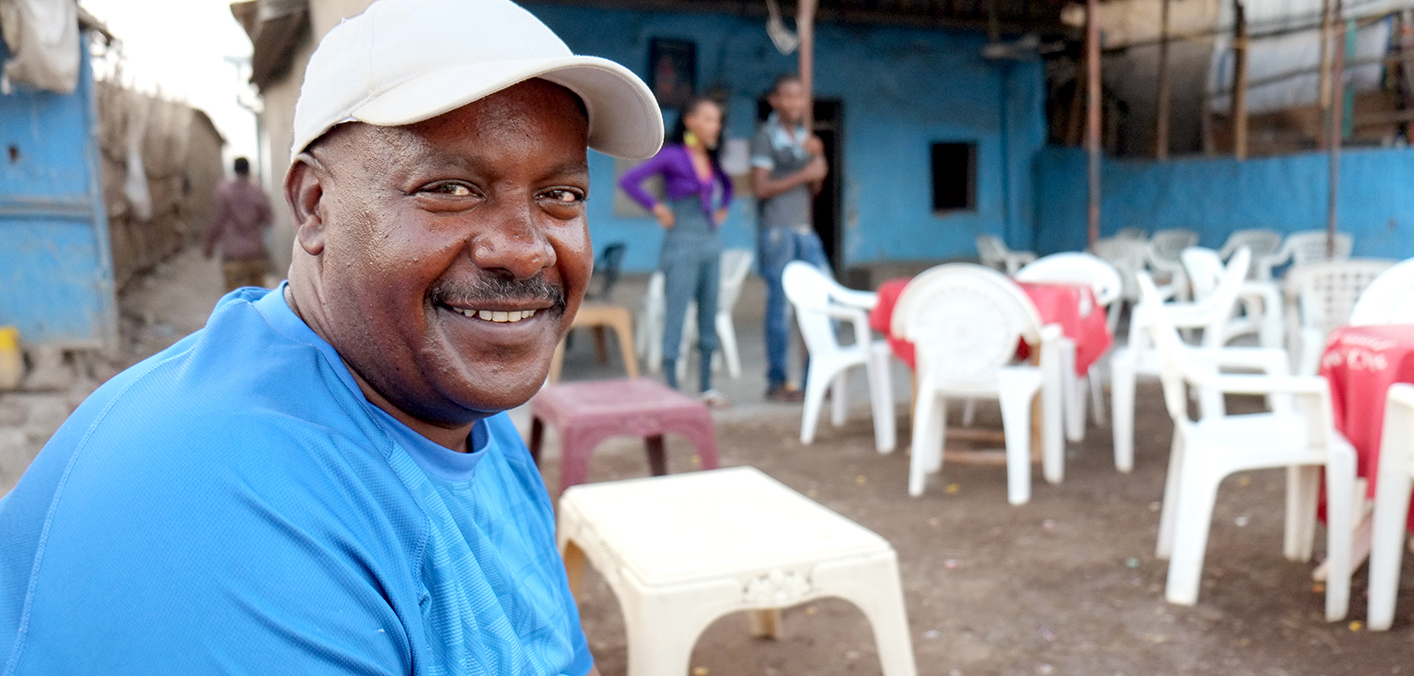Community Impact 2.0
Story

In the Afar region of Ethiopia, Cuso International volunteer Belay Terefe looked up at the walls in Samara University to see them covered with papers: notices, messages and bulletins of all sorts. “Why not use email?” Belay thought. Belay was born and raised in Ethiopia, but now 53 years old, he was returning for the first time in July 2013 after migrating to Canada at 28. He didn’t expect to see such reliance on paper to communicate, given how much technology has advanced since he lived there.
When Belay moved to Canada to pursue his education he made a promise to himself that he would return to Ethiopia to give back. When he saw an opportunity to do this with Cuso International using his professional skills, he knew he’d found his chance.
As part of a partnership between Cuso International, VSO, and Samara University, his role involved upgrading the university’s communication and information technology systems and infrastructure. The school had just implemented an internal computer network and established an IT department, but a disconnection existed between theoretical IT knowledge and practical experience, says Belay
In the first phase of his job, Belay assessed the school’s IT structure and internal systems and made recommendations about how to improve them. In the second phase, Belay implemented many of his recommendations. They included building the school’s internal IT systems and managing projects that required the efforts of more people. Throughout his time there he taught students and members of the IT department how to use, manage and run the tools and processes.
“The lab instructors did not have hands-on experience before… theoretically they are very good,” he says. “I put it together in workshop form in the lab and did it in front of them. So, I taught them how to put their hands on it so that when I go away they will have an idea of how to do it.”
Information and communicative technologies can boost economic development and strengthen social networks and improving access to technology holds much value for development. Belay says he witnessed the impact of technological improvements throughout his placement.
Through technological upgrades, benefits flow to many people. First, capacity is built at an institutional level through tools that enhance the jobs of faculty and staff. Next, all students benefit from digitized services like online libraries and departmental information. Students studying IT also gain access to practical systems to work on and learn from, which builds upon the theoretical knowledge they acquire in class. Students then take this knowledge into the workplace after graduation. Lastly, by upgrading physical telecommunications infrastructure like wireless towers, the surrounding community benefits through the communications services that become available to them as a result.
In his spare time, Belay tutored students as well.
“I showed them a lot of videos and explained to them, they have to see it,” he says. “The benefits are so huge.”
As a Diaspora volunteer, he wanted to give as much to the community during his time there.
BEGIN YOUR VOLUNTEER JOURNEY NOW
MAKE A DONATION AND HELP SEND MORE VOLUNTEERS WHERE THEY’RE NEEDED MOST